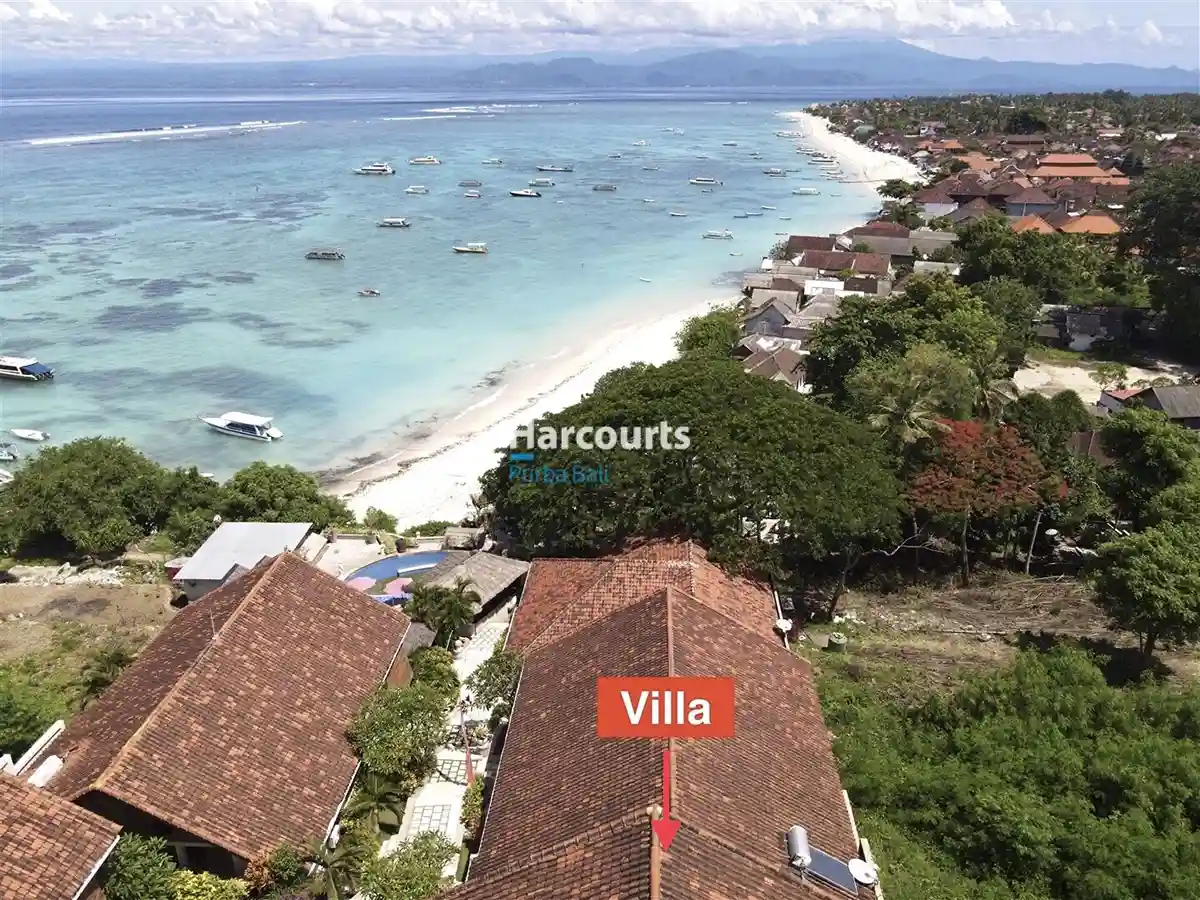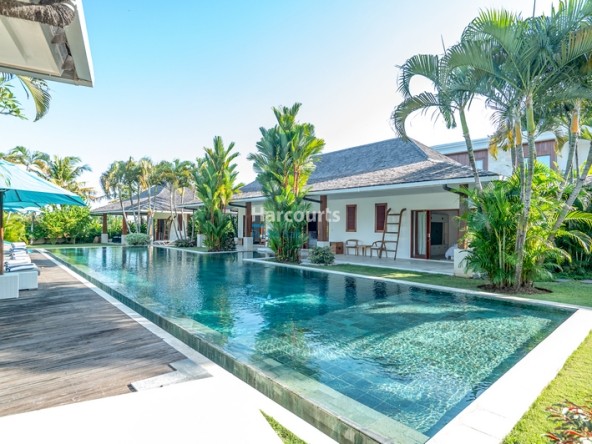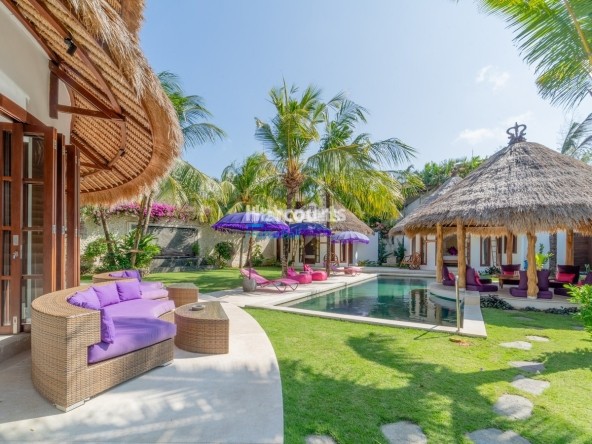Owning a piece of paradise in Bali is a dream for many, a vision of sipping coconut water on your own sun-soaked terrace or strolling along the pristine beaches just steps away from your front door.
Whether you imagine a luxurious private villa, a cozy beachside bungalow, or a thriving investment property, understanding the intricacies of land ownership in Bali is crucial.
In Bali, you have two primary options: freehold and leasehold.
Each comes with its own set of advantages and disadvantages, creating a unique landscape that requires careful consideration when determining the right fit for your individual needs and goals.
Freehold: Owning a Slice of Bali (Almost) Forever
What is a Freehold?
Freehold, or “Hak Milik” in Balinese terms, grants you perpetual ownership of both the land and the property built upon it. It is the most secure form of ownership in Bali, akin to absolute ownership in many other countries.
Advantages of Freehold
Stability and Security
The allure of freehold ownership lies in the sense of permanence it offers. You own the land outright, providing complete control over its use and development. The stability and security that come with this form of ownership allow you to make long-term plans, pass the property down to your heirs, sell it at any time, and enjoy unrestricted usage.
Potential for Value Appreciation
Over time, freehold property in Bali tends to appreciate in value, offering a lucrative long-term investment. The flourishing tourism industry and the constant influx of international visitors contribute to the increasing demand for real estate, adding value to your investment.
No Lease Renegotiations
Unlike leasehold properties, freehold ownership spares you the uncertainty of lease renewals or potential rent increases. Once you own the property, it’s yours to manage as you see fit without external obligations.
Disadvantages of Freehold
Higher Cost
The dream of perpetual ownership comes with a hefty price tag. Freehold properties in Bali are significantly more expensive than their leasehold counterparts. The premium cost reflects the stability and security that freehold ownership provides.
Foreign Ownership Restrictions
While freehold is the ultimate ownership goal, there are restrictions for foreigners in Bali. They cannot directly own freehold land and must navigate the complexities of obtaining a Right of Use (Hak Pakai) title. This involves establishing a local company or participating in specific investment programs, adding layers of complexity and legal fees to the process.
Maintenance Responsibility
As the full owner, you bear the responsibility for all maintenance and upkeep costs. While this grants you complete control, it also means shouldering the financial burden of property management.
Leasehold: Enjoying Bali on Borrowed Time
What is Leasehold?
Leasehold, or “Hak Sewa,” grants you the right to use and occupy the property for a fixed period, typically ranging from 25 to 30 years, with potential extensions that can reach up to 70 years. Essentially, you hold a title that signifies you are renting the land from the owner for a specific duration.
Advantages of Leasehold
Lower Cost
The most compelling advantage of leasehold properties is their significantly lower cost compared to freehold options. This accessibility makes them an attractive choice for those with budget constraints, providing an entry point into Bali’s property market.
No Foreign Ownership Restrictions
Foreigners can easily acquire leasehold titles without the complexities associated with obtaining a Hak Pakai title for freehold ownership. This simplifies the process for international buyers, making leasehold a more straightforward option.
Reduced Maintenance Burden
Depending on the terms outlined in the lease agreement, maintenance responsibilities may be shared with the landowner. This can be particularly advantageous for those seeking a more hands-off approach to property management.
Disadvantages of Leasehold
Limited Ownership
The primary drawback of leasehold is the finite nature of ownership. Unlike freehold, where ownership is perpetual, leasehold grants you the right to enjoy the property for a specified period. Once the lease expires, ownership reverts to the landowner.
Lease Renewal Uncertainty
While lease extensions are common, there is no guarantee of renewal. Negotiations at the time of renewal can be unpredictable, introducing an element of uncertainty into the long-term plans of leasehold property owners.
Restrictions on Modifications
Lease agreements often specify limitations on renovations or improvements. This can restrict your ability to tailor the property to your preferences, depending on the terms negotiated in the lease.
No Value Appreciation
As you don’t own the land in a leasehold arrangement, the property’s value is unlikely to appreciate significantly during your lease period. This lack of appreciation potential may deter those looking for a purely financial investment.
Read more: A Guide to Buying Property in Bali
Making the Right Choice: A Tailored Decision
Choosing between freehold and leasehold depends on various individual circumstances that you should consider and usually varies on a case-by-case basis. Several key factors should influence your decision-making process:
Long-term vision
If you see yourself in Bali for the long haul and intend to pass the property down through generations, freehold offers greater stability and potential returns. The upfront higher cost may be justified by the long-term benefits.
Budget
If affordability is a primary concern, leasehold provides a more accessible entry point into Bali’s property market. This option allows you to enjoy the island without a substantial initial investment.
Investment goals
For those driven by purely financial gain, freehold ownership holds greater potential for value appreciation over time. It may be the preferred choice for those looking at property ownership as a lucrative investment.
Lifestyle preferences
If flexibility and lower upfront costs are your priorities, leasehold allows you to enjoy Bali without a hefty initial investment. This is particularly appealing for those who view their property as a vacation home rather than a long-term residence.
Regardless of your choice, consult with a reputable lawyer and real estate agent specializing in Balinese property law. Their expertise is invaluable in navigating the legal intricacies associated with property ownership.
Thoroughly review the lease agreement or land title deed before making any commitments.
Understanding all terms and conditions is essential to avoiding future complications. Factor in additional costs such as maintenance fees, taxes, and insurance when assessing the overall financial implications of your choice.
Bali property ownership journey is an exciting adventure, and to ensure a seamless and informed experience, consider partnering with Harcourts Purba Bali.
As a professional and trusted real estate agency in Bali, Harcourts Purba Bali brings a wealth of expertise in Balinese property law, ensuring that your investment is not only a dream but a well-secured reality.
Our dedicated team is committed to providing personalized guidance, navigating the intricacies of freehold and leasehold options, and helping you find the perfect property tailored to your unique needs. Consult with Harcourts Purba Bali today and let us be your trusted ally in making your Balinese dream property a reality. Your journey to paradise starts here – let us make it a smooth and memorable one for you.
Read more: Building Your Dream Bali Villa: A Comprehensive 7 Step Guide




